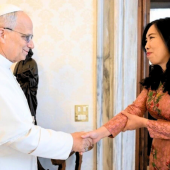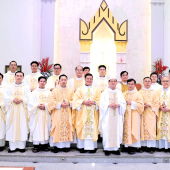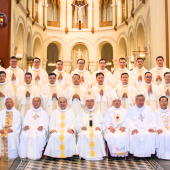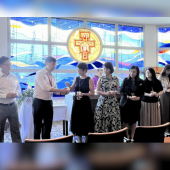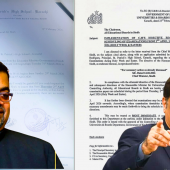Vietnam’s Archdiocese of Hue gets new archbishop
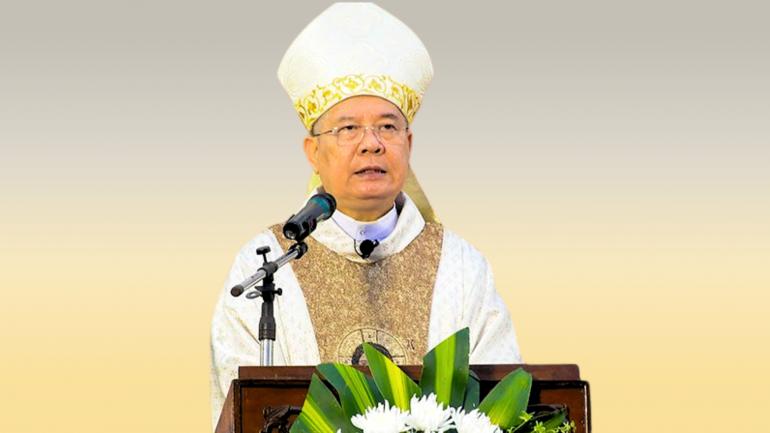
Pope Leo XIV has appointed a new leader for the Archdiocese of Hue as Archbishop Joseph Nguyen Chí Linh retires.
In a bulletin published by the Holy See Press Office, it was announced that he would be succeeded by Archbishop Joseph Dang Duc Ngan, until now coadjutor archbishop of the same archdiocese.
Archbishop Ngan was born on June 16, 1957 in Hanoi, Vietnam. He studied philosophy and theology at Saint Joseph Major Seminary in Hanoi before his ordination to the priesthood on December 8, 1987.
After providing pastoral care to a local parish and working as a secretary at the archbishop’s house, he went to Rome to obtain a doctorate in canon law at the Pontifical Urbaniana University from 1994 to 1999.
Upon returning to Vietnam, Ngan worked at the archbishop's house, taught at the major seminary and served as vicar general of his archdiocese.
Pope Benedict XVI appointed him as bishop of the Diocese of Lang Son-Cao Bang and was consecrated on December 3, 2007.
On March 12, 2016, Pope Francis appointed him as bishop of Da Nang and on September 21, 2023, as coadjutor archbishop of Hue.
Archbishop Ngan will be the successor of 75-year-old Archbishop Joseph Nguyen Chi Linh. Born on November 22, 1949 at the Ba Lang Parish in Thanh Hoa province, he went on to study philosophy and theology at local seminaries in Hue, Nha Trang, and Da Lat from 1962 to 1977.
He was ordained a priest on December 20, 1992 and obtained a doctorate in philosophy at the Institut Catholique de Paris in France in 2003.
Upon returning to Vietnam, Archbishop Linh served as a professor at the Stella Maris Major Seminary in Nha Trang.
Pope Saint John Paul II appointed him as bishop of the northern Thanh Hoa diocese on June 12, 2004 and was consecrated on August 4, 2004.
On October 26, 2016, Pope Francis appointed him as archbishop of Hue.
Radio Veritas Asia (RVA), a media platform of the Catholic Church, aims to share Christ. RVA started in 1969 as a continental Catholic radio station to serve Asian countries in their respective local language, thus earning the tag “the Voice of Asian Christianity.” Responding to the emerging context, RVA embraced media platforms to connect with the global Asian audience via its 21 language websites and various social media platforms.









